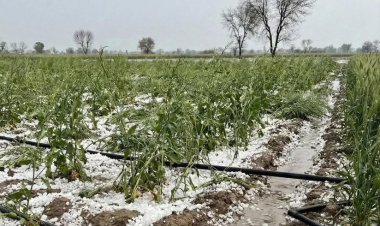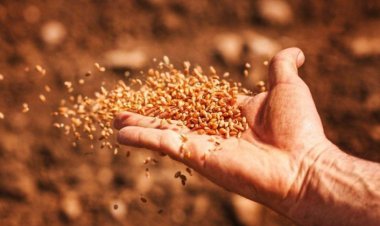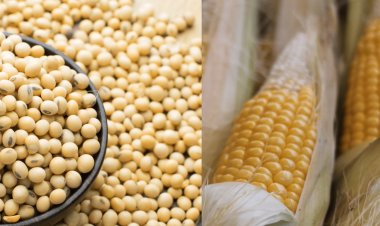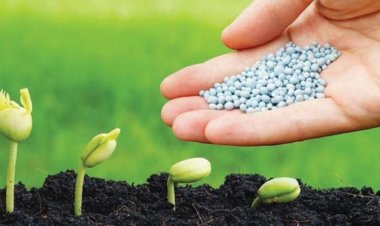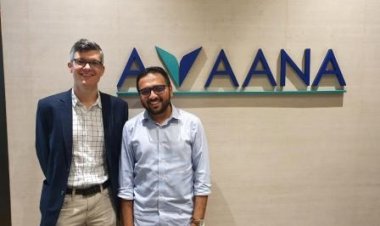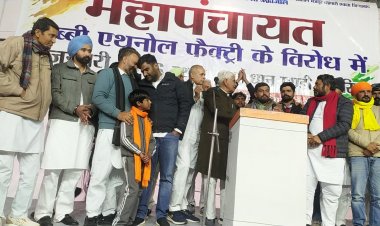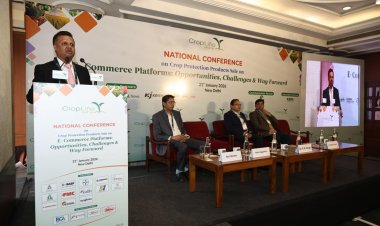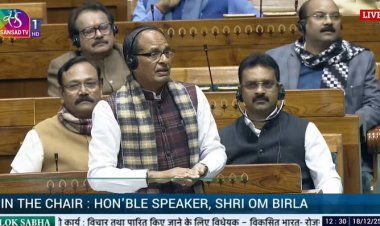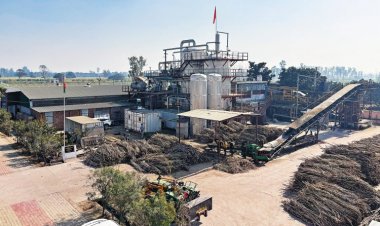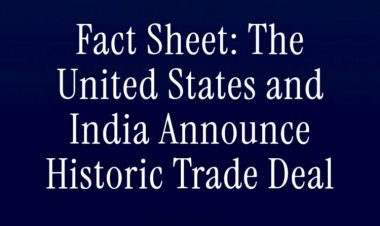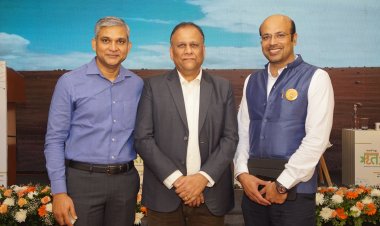22 crore Soil Health Cards distributed to farmers across the country: Union Agriculture Minister
Union Agriculture and Farmers Welfare Minister Narendra Singh Tomar has said that due to chemical farming and other reasons, soil fertility is getting eroded and climate change is going to be a big concern for the country as well as the world. He said that the Government of India is also working through Soil Health Card (SHC). In two phases, more than 22 crore SHCs have been distributed to farmers across the country. Infrastructure development is also being done by the Government under the Soil Health Management Scheme.
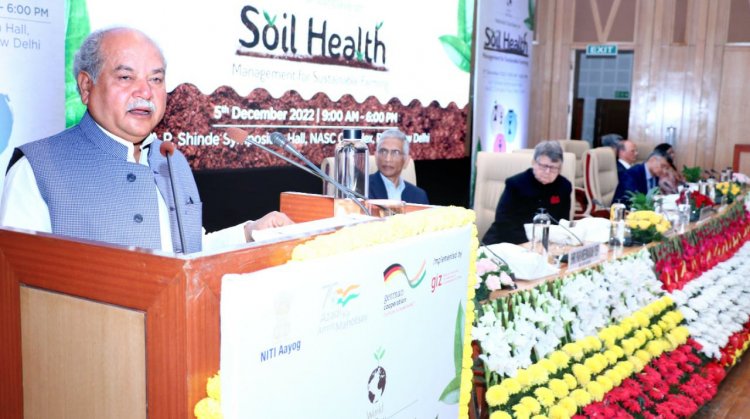
Union Agriculture and Farmers Welfare Minister Narendra Singh Tomar has said that due to chemical farming and other reasons, soil fertility is getting eroded and climate change is going to be a big concern for the country as well as the world. He said that the Government of India is also working through Soil Health Card (SHC). In two phases, more than 22 crore SHCs have been distributed to farmers across the country. Infrastructure development is also being done by the Government under the Soil Health Management Scheme. Tomar said that Prime Minister Narendra Modi has concerns about climate change and is committed towards achieving the Sustainable Development Goals (SDGs).
On the occasion of Azadi Ka Amrit Mahotsav and World Soil Day, NITI Aayog in collaboration with GIZ affiliated with the Federal Ministry for Economic Cooperation and Development (BMZ), Germany, chief guest Tomar said that the lack of organic carbon in the soil is a serious concern for us. To meet this serious challenge and for better soil health, we have to promote natural farming, which is beneficial for the environment. For this, the Government of India under the leadership of Prime Minister Narendra Modi is working with the States.
Tomar said that the Government had re-adopted the Indian natural farming system for agriculture. States like Andhra Pradesh, Gujarat, Himachal Pradesh, Odisha, Madhya Pradesh, Rajasthan, Uttar Pradesh and Tamil Nadu have made many innovations to promote natural farming. During the last year, an additional area of 4.78 lakh hectares has been brought under natural farming in 17 States. To promote natural farming, the Central Government has approved the National Mission on Natural Farming as a separate scheme with an expenditure of Rs 1,584 crores, Tomar said. Under the Namami Gange programme, the project of natural farming is going on along the banks of the Ganga, while the Indian Council of Agricultural Research (ICAR) and all Krishi Vigyan Kendras (KVKs), Central and State Agricultural Universities and colleges are making all-round efforts to promote natural farming.
The Minister said that the Government of India was also working through SHC. In two phases, more than 22 crore SHCs have been distributed to farmers across the country. Infrastructure development is also being done by the Government under the Soil Health Management Scheme, in which there is a provision to set up different types of soil testing laboratories (STLs). So far, 499 permanent STLs, 113 mobile STLs, 8,811 mini STLs and 2,395 village-level STLs have been established.
Tomar said that there was a time when the policies were production-oriented. Due to chemical farming, agricultural yield increased. But now the situation has changed, and with climate change, keeping soil health intact is a big challenge. Tomar said that if an attempt was made to exploit the earth contrary to the principles of nature, the consequences could be dangerous. Today, due to chemical farming, the soil's fertility is being eroded. The country and the world should avoid this and fulfil our environmental responsibility.
In the conference, Vice Chairman of NITI Aayog Suman Berry, Member Prof. Ramesh Chand, CEO Parameswaran Iyer, Senior Advisor Neelam Patel, Central Agricultural University of Jhansi Vice Chancellor Dr AK Singh and Drik Steffis were present along with several scientists, policymakers and other stakeholders.



 Join the RuralVoice whatsapp group
Join the RuralVoice whatsapp group

















